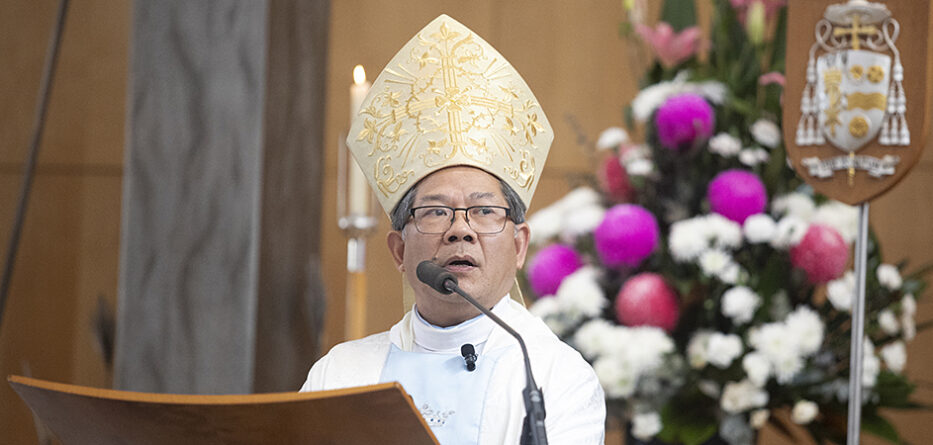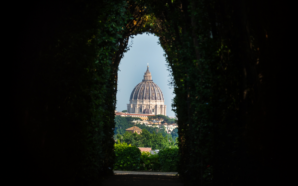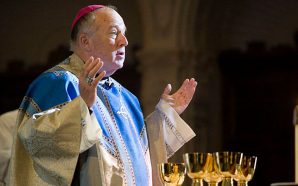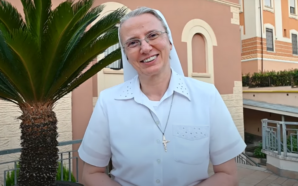Most Reverend Vincent Long Van Nguyen OFM Conv DD STL, Bishop of Parramatta
Homily for the second Sunday of Advent: Year C
Readings: Baruch 5:1-9; Philippians 1:4-6-, 8-11; Luke 3:1-6
Galvanised by the Holy Spirit to be a beacon of hope
Dear friends,
It is not difficult for us to fall into despair these days. In fact, wherever we look, a sense of despondency seems to prevail. The war in Ukraine is dragging on with no end in sight. The situation in the Middle East continues to escalate, with Lebanon in particular suffering what is considered the most deadly and intense military strike in decades. These conflicts do not end at their respective borders. Many communities in Australia are affected. Our multicultural society is being shaken to its core by the deepening tensions. The attack on a Jewish synagogue in Melbourne during the week was an ugly manifestation of antisemitism that we all have a responsibility to eliminate.
Faced with situations of persistent and entrenched hopelessness, we can turn inward and abandon the good fight. We can feel numbed and overwhelmed by the seemingly unchangeable status quo.
The readings this second Sunday in Advent speak words of encouragement, strength and hope to us in times of turmoil and upheaval. They remind us that God is always active in history and it is possible for us to act in such a way that moves the world in the direction of God’s kingdom.
In the first reading, the prophet Baruch comforts his sorrowful people. It is a speech that points them beyond the gloom and doom. During the long and harrowing exile, the faith of the Jewish people was put to the test. Many drifted away. Others persevered more or less in the practice of the covenant. Baruch seeks to galvanise them with fresh hope. He assures them that the captivity would end and God would bring them back to their homeland. In a burst of poetic joy, Baruch describes the jubilation of homecoming captives. Jerusalem is stripped of sorrow and wrapped in the cloak of integrity and the diadem of glory. Then in a rare moment of epiphany, the prophet speaks of the new Jerusalem as a focal point for all the people of the world. “God means to show your splendour to every nation”, he writes.
This is a sobering and poignant lesson for the Church today. Like the Jewish exiles of old, we find ourselves in a new captivity where the bearings we relied on are fast receding. Like them, we are surrounded by an unfamiliar and even hostile landscape. No longer sheltered in the safe harbour of Christendom, we must nagivate the treacherous waters of a post-Christian world. The litmus test for us as it was for Israel is not to seek to reassert our dominance and return to our once safe world, but to grow strong in our faith through times of chaos. Baruch called the people to be the beacon of light. We have much to learn from our ancestors in faith. We must learn to be an alternative society of solidarity, compassion, justice and love in the midst of the brave new world around us.
The Gospel tells us about the ministry of John the Baptist. It draws a sharp contrast between the disruptor and the keepers of the status quo. On the one hand, we have all these powerful figures: Pontius Pilate, Herod, Philip, Annas, Caiphas… They ruled the world from their palaces and controlled a system of power that favoured themselves. Then there was the Baptist, an insignificant person who lived in a no man’s land. It was the movers and shakers of the day versus the unlikely outsider. And yet true to the style of St Luke, it was the powerless who had the better of the powerful; it was John the Baptist, the lone voice in the wilderness who spoke God’s word of truth, justice and love. It was the outlier who disrupted those who had vested interests in continuity and resisted the new things that God was doing.
“Make his paths straight. Every valley will be filled in and every mountain and hill be laid low”. These dramatic images evoke the new things that God intended. In the context of John’s ministry, they point to the radical change that is demanded of the followers of Jesus, individually and collectively. It is a call for us to align our minds and hearts to the loving, giving and vulnerable way of God in Christ. It is also a call to dismantle all that is unjust, oppressive and harmful to God’s people, especially the most vulnerable among us.
Dear brothers and sisters,
Advent is a time of reflection, a kind of spiritual wilderness in which John lived and Jesus himself was led by the Spirit of God at the beginning of his public ministry. It is a time of extricating oneself from the unnecessary trappings of life and focussing on that which matters the most. Advent then is a kind of self-exile for us as we seek to nourish ourselves more deeply from the source of life and love. We are pruned and purified of the things that keep us from being true to our mission. We learn to live more simply and more truly.
Let us pray that we may not give in to despair. Instead, guided by the example of Jesus and galvanised by the Holy Spirit, we can live up to our prophetic call to be a beacon of hope for humanity. May we become a more authentic sign of his presence and love in the world. May we like Mary who submitted humbly and courageously to God at every turn in her strenuous journey help us to be his humble instruments of the kingdom.








